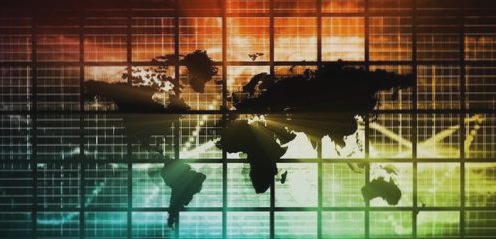Different concepts
PCB (Printed Circuit Board): A PCB is a printed circuit board, typically referring to a bare board without any electronic components soldered onto it. It primarily consists of an insulating substrate and conductive traces, used to connect and support electronic components.
PCBA (Printed Circuit Board Assembly): PCBA refers to a PCB that has been soldered with electronic components. It is a complete circuit board containing all necessary components and can be directly used in electronic devices.
PCB is the upstream industry of PCBA, while PCBA is the downstream industry of PCB.
Different production processes
PCB Production Process: The manufacturing of PCBs is a complex process, involving multiple steps such as material cutting, drilling, solder mask application, legend printing, and surface finishing. These steps require highly precise equipment and stringent quality control to ensure the performance and reliability of the final product.
PCBA Production Process: The manufacturing process of PCBA is relatively straightforward, primarily involving the installation of appropriate components onto the PCB through manual or machine soldering. This step requires precise soldering techniques and the correct selection of components.
Different production times
PCB Production Time: Due to the complexity of the PCB manufacturing process, the production time is typically lengthy. From raw material preparation to the completion of the final product, it may take anywhere from several days to several weeks.
PCBA Production Time: The production time for PCBA is relatively short, primarily depending on the procurement cycle of components and the efficiency of the soldering process. However, the production time for PCBA may be affected by delays in component supply.
Different costs
PCB Cost: The cost of a PCB is primarily composed of materials (such as FR-4, copper foil, etc.) and various process fees during production. Since PCBs do not include components, their cost is relatively low.
PCBA Cost: The cost of PCBA includes the cost of the PCB, as well as the expenses for component procurement, soldering, and testing. Therefore, the cost of PCBA is typically significantly higher than that of PCB.
Application Scenarios
PCB: Typically used in scenarios requiring high-density interconnect (HDI) or complex circuit designs, such as computer motherboards, servers, and communication equipment.
PCBA: Widely used in various electronic devices, such as consumer electronics, industrial control equipment, medical devices, automotive electronics, and more.
Quality Control
PCB Quality Control: Quality control of PCBs primarily focuses on the production process to ensure that parameters such as line width, spacing, and aperture size meet design requirements. Common testing methods include electrical testing, optical inspection, and mechanical testing.
PCBA Quality Control: The quality control of PCBA not only involves the testing of PCBs but also requires rigorous inspection of soldering quality and component performance. Common testing methods include functional testing, X-ray inspection, and automated optical inspection (AOI).
Design Complexity
PCB Design: PCB design must consider factors such as Signal integrity, Electromagnetic compatibility (EMC), thermal management, and mechanical strength. The design process typically utilizes professional PCB design software, such as Cadence and Altium.
PCBA Design: Building upon PCB design, PCBA design requires further consideration of component placement, soldering processes, and the overall reliability of assembly. The design process must be closely integrated with PCB design to ensure the performance and functionality of the final product.
Market Demand
PCB Market Demand: As the foundation of electronic devices, the market demand for PCBs is steadily growing. With the advancement of technologies such as 5G, the Internet of Things (IoT), and Artificial Intelligence (AI), the need for high-performance PCBs is continuously increasing.
PCBA Market Demand: As a complete circuit board solution, PCBA is experiencing increasingly diverse market demands. With the trend of miniaturization and complexity in electronic products, the demand for PCBA is also continuously growing.
Future Trends
Future Trends in PCB: The PCB industry is set to continue advancing towards High-Density Interconnect (HDI), multilayer boards, and advanced packaging technologies. The application of new materials and processes will further enhance the performance and reliability of PCBs.
Future Trends in PCBA: The PCBA industry will benefit from the continuous innovation and market expansion of electronic products. With the development of the Internet of Things, wearable devices, and autonomous driving technologies, the demand for PCBA is expected to maintain robust growth.
From the above analysis, it is evident that PCB and PCBA exhibit significant differences in multiple aspects. PCB serves as the foundation of electronic devices, whereas PCBA represents a fully functional circuit board suitable for various application scenarios. The choice between PCB and PCBA depends on specific application requirements and cost considerations.
WellCircuits offers 1-64 Layers PCB and PCBA Manufacturing, supporting quick-turn prototyping, Please feel free to contact us, or email: info@wellcircuits.com


